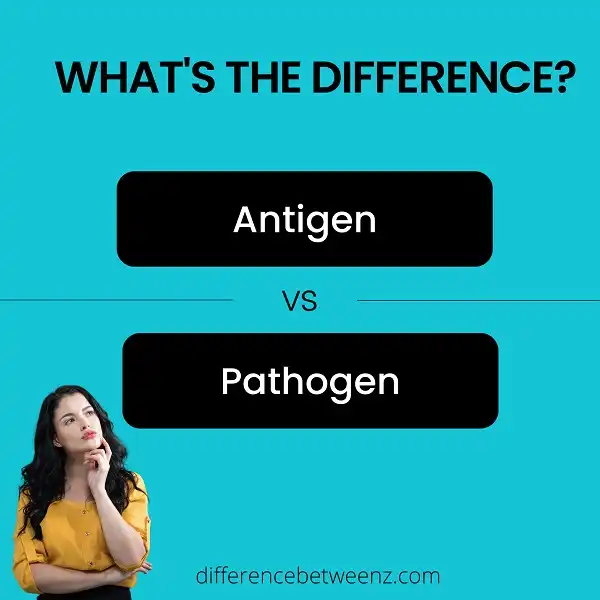There is a lot of confusion surrounding the difference between antigen and pathogen, so in this post, we will clear it up. An antigen is any substance that can trigger an immune response, while a pathogen is a microorganism that causes disease. Pathogens can be either bacteria, viruses, or parasites, while antigens can come from both pathogens and other sources such as food or pollen. So now you know the difference- keep it in mind the next time you hear these terms thrown around!
What is Antigen?
The antigen is a foreign substance that, when introduced into the body, stimulates an immune response. Antigens can come from bacteria, viruses, toxins, or other substances that originate outside the body. The immune system recognizes antigens as being foreign and produces antibodies to neutralize them. Antibodies are protein molecules that bind to specific antigens and help eliminate them from the body. Antigens also play a role in blood transfusions and transplantation, as well as in certain disease states such as autoimmune disorders and allergies.
What is Pathogen?
Pathogens are tiny organisms that cause disease. They can be bacteria, viruses, fungi, or protozoa. Pathogens enter our bodies through contaminated food or water, direct contact with an infected person, or contact with contaminated surfaces. Once inside our bodies, they multiply and cause illness. Some common diseases caused by pathogens include Salmonella food poisoning, influenza, and tuberculosis.
Pathogens can also cause serious outbreaks of disease, such as SARS and Ebola. Although we cannot always prevent exposure to pathogens, good hygiene practices can help reduce the spread of disease. washing hands regularly and cooking food thoroughly are just two simple ways to protect ourselves from pathogenic organisms.
Difference between Antigen and Pathogen
- Antigens are substances that the body recognizes as foreign, and which elicit an immune response. Antigens can be proteins, glycoproteins, or polysaccharides, and can be found on the surface of viruses, bacteria, fungi, and parasites. Antigens are recognized by the body’s immune system and are what vaccines are made from. Pathogens, on the other hand, are microorganisms that cause disease. Pathogens can be viruses, bacteria, fungi, or parasites.
- Some pathogens, like certain types of bacteria, can live on the skin or in the gut without causing disease; others, like the flu virus, only cause disease when they enter the body through mucous membranes or break in the skin. The body’s immune system is designed to protect against pathogenic invasion; however, sometimes pathogens are able to evade detection and cause infection.
- Antibodies are proteins produced by the immune system that bind to antigens in order to neutralize them. Antibodies can also help recruit other immune cells to fight infection. Antibodies are key players in protecting against both antigens and pathogens.
Conclusion
Antigens and pathogens are both important in the body’s immune system, but they play different roles. Antigens are proteins that help the body identify infections, while pathogens are the organisms that cause infection. Understanding the difference between these two terms is important for anyone who wants to learn more about immunology or vaccinology.


